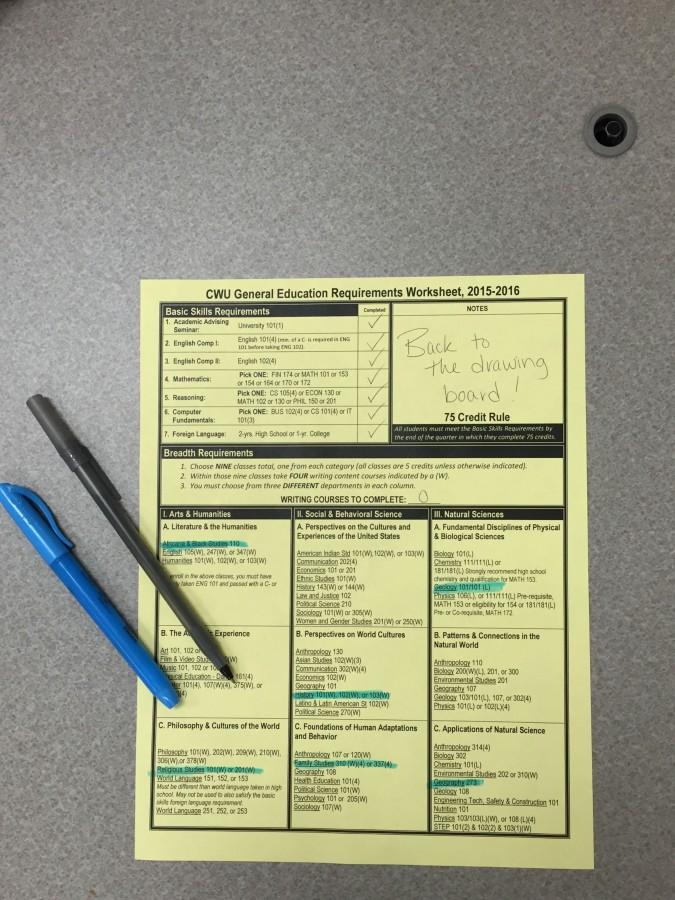Faculty turn down gen ed proposal
April 21, 2016
Central’s Faculty Senate hit another stalemate in their attempts to revamp the general education program.
The Faculty Senate’s latest attempt to move forward on reforming Central’s general education program was shot down at the most recent meeting on April 6. The general education committee proposed a program with rearranged classes which lead to an impasse within the senate.
Hauke Harfst, ASCWU Vice President of Academic Affair, said he was “disappointed” that the faculty didn’t have the students in mind during the senate meeting.
“What it felt like was an adult bickering match between disciplines,” Harfst said, “not once was mentioned what’s most effective and what’s best for the students … ultimately that needs to be the end goal of everything and I didn’t quite see that.”
The current general education program has been in place for about 15 years according to Todd Schaefer, chair of political science. The faculty senate has been attempting to improve it for years but has been unsuccessful in forming a plan that every department agrees upon.
One of the problems with the most recent proposal, Schaefer said, was the senate kept the current program framework but asked academic departments to re-submit their classes and re-show how they fit into the new program.
According to Schaefer, new classes fit in where old ones were left out and the departments disagreed on which classes should be included or excluded.
“Every department is under more pressure to justify their existence in enrollment and one way is through general education,” Schaefer said, “so you have some of those things adding to turf battles.”
Additionally, multiple departments are already invested in the current system which makes it harder to change Schaefer said.
Schaefer is a representative for his department of political science and other social sciences who disagrees on class placement in the new program.
“One of my biggest concerns was that somebody could graduate in the social science breadth area and not have taken a class at all in the traditional [areas],” Schaefer said.
Schaefer said he believes that classes taught by a certain department should not count as college credits towards a different department.
“There are things that cross fields,” he said, “but if we have a politics and literature class should that be able to count in your humanities and literature stuff? I don’t think so, because we’re not teaching it the same way.”
On the other side of the impasse, some members of the faculty senate support the new program. Rebecca Pearson, associate professor of health, educational administration and movement studies, said she thinks the senate should move forward on the latest proposal.
“I believe it is a better program than has been in place,” she said, “I would like to see students offered the opportunity to take new courses in fulfillment of this important requirement.”
It is difficult for the senate to agree on a program because there are so many departments involved, According to Schaefer.
Schaefer said he thinks that until a new framework for general education is developed, the senate should uphold the old one.
“No system is going to be perfect and I think it depends on what the faculty want students to get out of it,” he said, “if it’s not doing what we want it to do then we should change, but I think we need a clearer idea of what we want out of it.”


